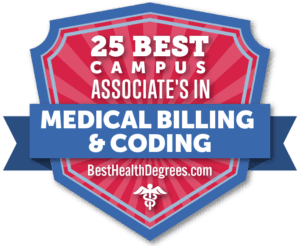
Key Takeaways:
- Tulsa Community College and Vol State Community College are two top associate’s in medical billing and coding systems.
- Associate’s degrees prepare students for roles in hospitals, clinics, and insurance companies.
- Topics such as medical coding, health information management, and healthcare law and ethics are covered in the associate’s degree program.
- Some colleges offer hybrid formats, combining online and on-campus courses, which can include general education and specialized healthcare courses.
The best associate degree in medical billing and coding offers a flexible path for individuals to train for a new career. While billing and coding may not be complicated, it is complex.
Medicare, Medicaid, TRICARE, and commercial insurance depend on accurate coding for diagnostic procedures to reimburse physicians, hospitals, and other healthcare facilities. Most employers will prefer medical records and Health Information Technicians (HIT) to hold certification from the American Association of Professional Coders (AAPC) or the American Health Information Management Association (AHIMA).
We’ve researched Medical Billing and Coding associate degrees that offer the best opportunities for preparing you for a Medical Records and Health Information Technician career. Most of these schools have accreditation from the Commission on Accreditation for Health Informatics and Information Management Education (CAHIIM).
Our Method: Ranking the 25 Best Medical and Billing Coding Associate’s Degrees
To rank the 25 Best Medical Billing and Coding Degrees, Best Degrees editors researched accredited, trusted programs of all kinds. We ranked programs according to price, accreditation, reputation, and salary potential from our initial pool, using data from IPEDS and Niche, U.S. News and World Report, and other higher education rating publications.
1. Tulsa Community College
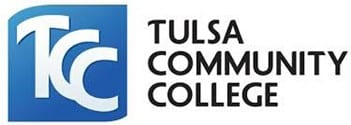
Tulsa Community College, Oklahoma’s largest two-year college, offers an online Associate in Applied Science (AAS) in Health Information Technology (HIT) degree. This online associate degree teaches you how to use health management data, and legal requirements for personal health information, identify various reimbursement systems, analyze procedures and policies, and acquaint you with leadership skills.
You’ll take 69 credit hours for this health information systems degree. The curriculum includes, among other topics, medical terminology, classification systems, physician billing and reimbursement, medical coding, statistics, and research. The program has accreditation from the Commission on Accreditation for Health Informatics and Information Management Education (CAHIIM) and can lead to certification as a Registered Health Information Technician (RHIT). You can review the admission requirements for more information.
Degree Awarded: Associate in Applied Science (AAS) in Health Information
Fast Fact: Tulsa Community College has a 100% acceptance rate
Interested: See the program website for more information on this medical billing and coding degree!
2. Vol State Community College
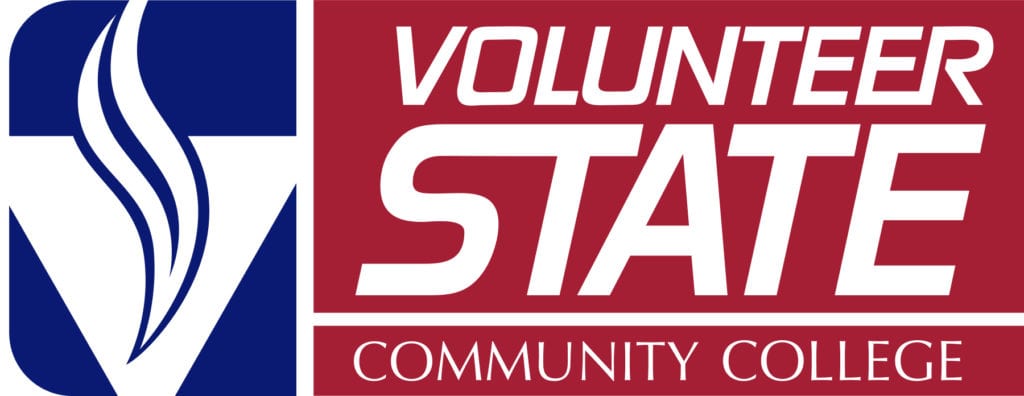
Located in the Volunteer State of Tennessee, Vol State Community College serves an 11-county area in middle Tennessee. The 66-credit-hour online associate degree in Health Information Management (HIM) provides studies in basic ICD coding, CPT coding, medical terminology, principles in HIM management, anatomy and physiology, analysis of data, etc. Additionally, a Professional Practice Experience for this degree provides real-world experience along with the curriculum.
Volunteer State Community College holds accreditation from the Commission on Accreditation for Health Informatics and Information Management Education (CAHIIM), the gold standard for HIM collegiate programs. The program will qualify you to sit for the Registered Health Information Technician certification exam. Additionally, students must take the Educational Testing Service Proficiency Profile (ETSP) test before graduation.
Degree Awarded: AAS
Fast Fact: VSCC has a 100% graduate satisfaction rate
Interested: See the program website for more information on this medical billing and coding degree!
3. Durham Tech Community College

Here’s an AAS in Health Information Technology degree, which requires 73 credit hours and holds CAHIIM accreditation. You’ll study ICD and CPT coding, health informatics, electronic health records (EHR), medical terminology, principles of disease, healthcare law, and ethics, and a Professional Practice Experience.
You’ll be able to complete this degree in less than two years in an online program. The program is on campus and online, and students need to attend an information session. Durham Tech Community College dates to 1948 with a practical nursing program and expanded to seven campuses.
Degree Awarded: AAS
Fast Fact: DTCC has an 89% Registered Health Information Technician pass rate
Interested: See the program website for more information on this medical billing and coding degree!
4. Lone Star College
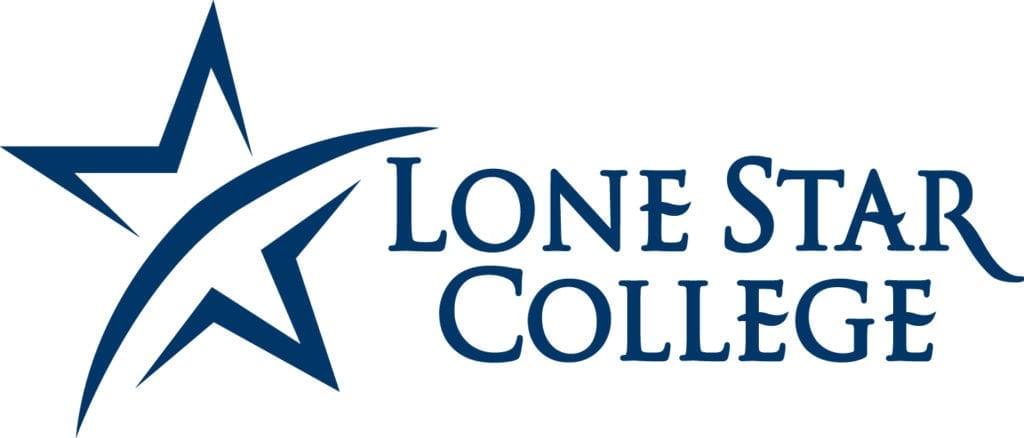
You’ll be able to sit for RHIT and the Certified Coding Associate (CCA) certification exams when you graduate with the AAS in Health Information Technology degree from this Texas school. The full HIT program is on the North Harris campus, and a partial program is available online (due to the pandemic, you may want to verify these locations with an admission advisor).
Courses covered include Human Anatomy and Physiology, Health Care Delivery Systems, Ambulatory Coding, Coding & Classification Systems, RHIT Competency Review, etc. The entire degree requires 60 credit hours. You’ll complete an Apply Texas application as part of the admission process, and Lone Star Community College is an open enrollment college.
Degree Awarded: AAS
Fast Fact: LSC has a student enrollment in excess of 87,000
Interested: See the program website for more information on this medical billing and coding degree!
5. Monroe Community College
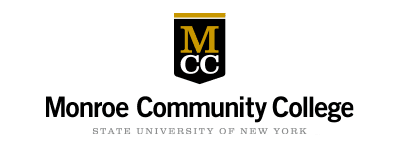
A member of the State University of New York (SUNY) system, Rochester, NY’s Monroe Community College provides a 64-credit hour AAS in Health Information Technology degree. This Commission on Accreditation for Health Informatics and Information Management (CAHIIM) accredited program prepares you to sit for the RHIT certification exam. This curriculum will give you a solid foundation in HIT methods and requirements.
Studies include medical terminology, human anatomy and physiology, healthcare documentation, ICD-10 and CPT coding, pharmacology, reimbursement, and other systems used in healthcare information. Admission for this program is open in September only, and you’ll need a mandatory grade of “C” or better in high school biology.
Degree Awarded: AAS
Fast Fact: Monroe Community College has a 100% graduation rate
Interested: See the program website for more information on this medical billing and coding degree!
6. Flathead Valley Community College

Located in Kalispell, Montana, Flathead Valley Community College offers a two-year AAS in Medical Coding degree. This program will prepare you to sit for the Certified Coding Associate (CCA) exam administered by the American Health Information Management Association (AHIMA), which is the gold standard for medical coders.
Among the 64 credit hour courses, you’ll take Medical Terminology, Basic Human Biology (with lab), Health Data Content Structure, Basic, Intermediate, and Advanced Medical Coding, and Electronic Medical Procedures. General education courses are also part of this degree. There’s an internship option to provide you with real-world medical coding experience.
Fast Fact: FVCC opened in 1967 and has expanded to include a campus in Lincoln County, MT
Degree Awarded: AAS
Interested: See the program website for more information on this medical billing and coding degree!
7. Mountwest Community and Technical College

Here’s a 64-credit hour AAS in Health Information Technology degree at Mountwest Community and Technical College in Huntington, WV. This degree will lead you to become a Registered Health Information Technician (RHIT) preferred by employers.
You’ll take subjects in medical ethics, healthcare delivery systems regulations and requirements, data reporting and reimbursement, ICD-10 coding, medical and insurance claims procedures, computer information systems, and more. Admission to this degree requires you to meet with the program faculty before submitting your application packet. This program is limited in enrollment.
Fast Fact: This degree has an 85% graduation rate
Degree Awarded: AAS
Interested: Interested? See the program website for more information on this medical billing and coding degree!
8. Springfield Technical Community College

This AAS in Medical Coding and Billing Specialist degree offers a solid foundation to help you find work in hospitals, clinics, physician offices, insurance companies, and more. You’ll take 61 credit hours and be eligible to sit for AHIMA’s CCA exam or the American Academy of Professional Coders Certified Professional (AAPC CPC) exam.
Located in Springfield, Massachusetts, STCC’s program includes studies in health information management, medical coding, human biology, electronic health records (EHR), healthcare ethics and law, and healthcare leadership. The program requires you to be proficient in word processing, spreadsheets, databases, etc., and you’ll need to maintain a minimum of a “C” average throughout your enrollment.
Fast Fact: STCC has been recognized by Washington Monthly as a “Best Two-Year Colleges for Adult Learners” (2019)
Degree Awarded: AAS
Interested: Interested? See the program website for more information on this medical billing and coding degree!
9. Tyler Junior College

Tyler, Texas, has been home to this junior college since 1926. The 60-credit-hour AAS in Medical Office Management includes general education courses (15 credit hours) and offers a broad range of healthcare topics to prepare you to enter the workforce or continue to a Bachelor of Applied Arts and Sciences (BAAS) at a four-year university.
You’ll become familiar with medical coding, medical terminology, medical insurance, English for business, various medical software applications, technical and business writing, organizational behavior, spreadsheet introduction, etc. The program offers a CPC test review as part of the curriculum. The program is a hybrid with some courses available online. You’ll need to maintain at least a “C” average throughout your course of study.
Fast Fact: Niche considers TJCC #44 in its “Most Diverse Colleges in Texas”
Degree Awarded: AAS
Interested: Interested? See the program website for more information on this medical billing and coding degree!
10. Central Oregon Community College
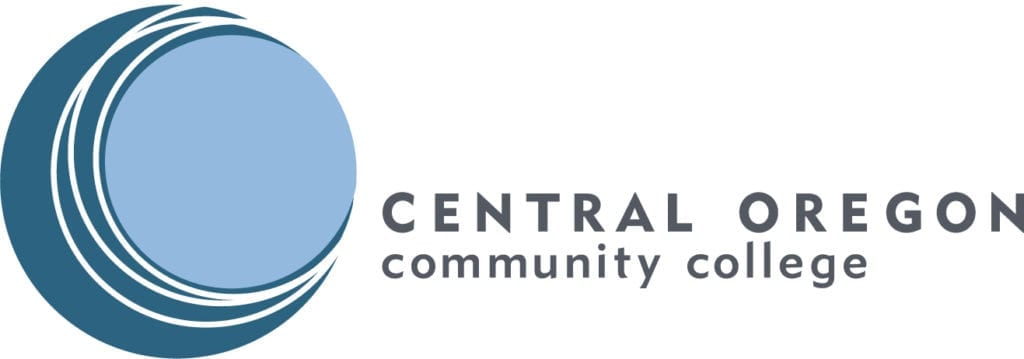
This program promises a career ladder approach that will provide the basis to earn a certificate designation in a medical office, medical billing specialty, and proficiency in coding. The AAS in Health Information Management degree is accredited by the Commission on Accreditation for Health Informatics and Information Management Education (CAHIIM). This program requires 103 quarter credit hours.
The topics you’ll study include medical coding, health information compliance, HIPAA regulations, statistics, classification systems, anatomy and physiology, a capstone project, and practice experience. You’ll be required to have a criminal background check completed and may need to submit a drug screen as well. Immunization records may be necessary for practice experiences.
Fast Fact: 100% acceptance rate (Niche)
Degree Awarded: AAS
Interested: Interested? See the program website for more information on this medical billing and coding degree!
11. Cowley County Community College
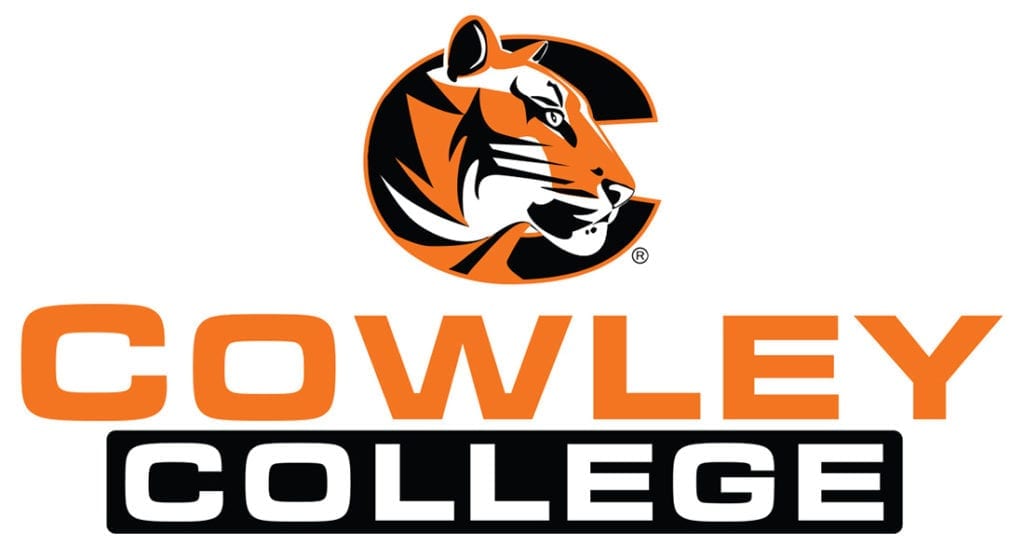
With the Medical Coding Associate of Applied Science degree from Cowley County Community College, you’ll take 30 credit hours of general education courses along with 35 credit hours of technical coursework. This curriculum will prepare you to sit for the American Health Information Management Association (AHIMA) Certified Coding Associate (CCA) and the Certified Professional Coder (CPC) certifications. The program emphasizes professionalism, written and oral communication skills, and spreadsheets and data management expertise.
Among the technical subjects you’ll study are pathophysiology, anatomy, computer applications, CPT and ICD coding, reimbursement methods, and a healthcare coding practicum.
The main campus for CCCC is located in Arkansas City, Kansas, with campuses in Winfield and Mulvane, KS. The school also offers this degree online.
Fast Fact: Niche ranks Cowley County Community College as one of its “Best Community Colleges in America”
Degree Awarded: AAS
Interested: Interested? See the program website for more information on this medical billing and coding degree!
12. Delaware Technical Community College
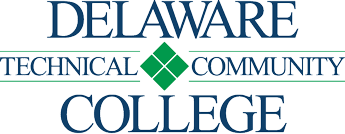
If you’re looking for a Health Information Management (HIM) associate degree, you may want to look at this Delaware school. This is a comprehensive program that will prepare you for a variety of entry-level HIM positions. Accreditation is provided by the Commission on Accreditation for Health Informatics and Information Management Education (CAHIIM).
Located on the Wilmington, DE campus, this 65-credit hour degree covers all areas of health information reporting. In addition to other subjects, you’ll study coding, technical writing, basics of health information, medical terminology, anatomy and physiology, and statistics, as well as participate in a practicum. This program has an average 92% pass rate on the Registered Health Information Technician (RHIT) exam.
Fast Fact: 85% of HIM graduates found work in the field
Degree Awarded: AAS
Interested: Interested? See the program website for more information on this medical billing and coding degree!
13. Northeast Wisconsin Technical College

One of Niche’s top 15 “Best Community Colleges in America,” Northeast Wisconsin Technical College provides a Health Information Technology (HIT) associate degree. The Commission on the Accreditation for Health Informatics and Information Management Education (CAHIIM) accredits this program, and you’ll be eligible to sit for the RHIT certification exam.
You’ll complete your degree in 62 credit hours in five semesters. HIT courses include ICD Diagnosis Coding, ICD Procedure Coding, Managing HIM Resources, Health Quality Management, etc. There’s also a practicum experience in a healthcare setting and a capstone project.
If accepted to this program, you’ll be required to comply with the Wisconsin Caregiver Law by providing a background check (via www.castlebranch.com) and completing a Background Information Disclosure (BID) form.
Fast Fact: Founded in 1912
Degree Awarded: AS in Health Information Technology
Interested: Interested? See the program website for more information on this medical billing and coding degree!
14. Northern Virginia Community College

If you want a CAHIIM-accredited Health Information Management AAS, you may want to review Northern Virginia Community College, which is located close to Washington, D.C.
This 72-credit-hour degree will prepare you to sit for the RHIT exam (the latest school-reported exam pass rate is an impressive 100%). The subjects you’ll study in the curriculum include human anatomy, medical terminology, HIM pharmacology, legal and regulatory concerns, healthcare data classifications and coding, and a capstone project. You’ll also be expected to have two unpaid, practical experiences before graduation. The college also offers a certificate in Clinical Data Coding.
If you’re currently in high school, NOVA offers a dual enrollment option that will allow you to take NOVA courses along with your current high school requirements. All students applying for this degree through the Medical Education Campus (MEC) must participate in the virtual information session.
Fast Fact: NOVA has a 100% acceptance rate according to Niche
Degree Awarded: AAS
Interested: Interested? See the program website for more information on this medical billing and coding program!
15. University of Alaska – Fairbanks
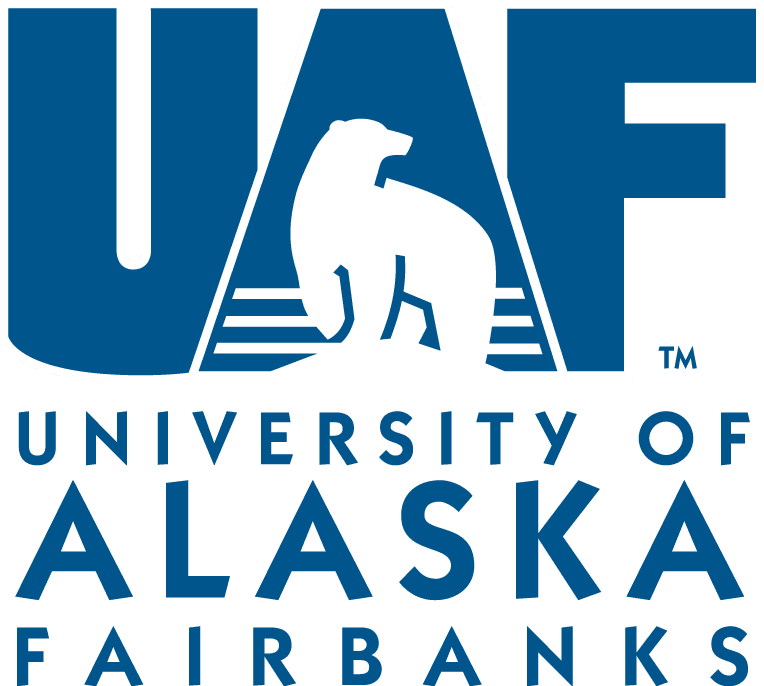
Healthcare systems, hospitals, clinics, physician offices, etc. rely on information technology professionals for more than patient records maintenance. Here’s an Information Technology Specialist AAS degree that offers three concentrations in Network and Cybersecurity, Network and System Administration, and Computer Technology.
The 60-credit-hour curriculum includes general education classes and core courses, including Introduction to Computer Networks, Server Operating Systems, Introduction to Coding and Programming, and a Cooperative Work Experience before taking specialty coursework. You’ll be required to pass a certification review before graduation, which will include the development of a portfolio and a hands-on demonstration. You’re expected to maintain a minimum of a “C” grade point average throughout your studies.
Fast Fact: Over 8,000 students from all 50 states are enrolled at the University of Alaska Fairbanks
Degree Awarded: AAS
Interested: Interested? See the program website for more information on this medical billing and coding program!
16. Santa Barbara City College
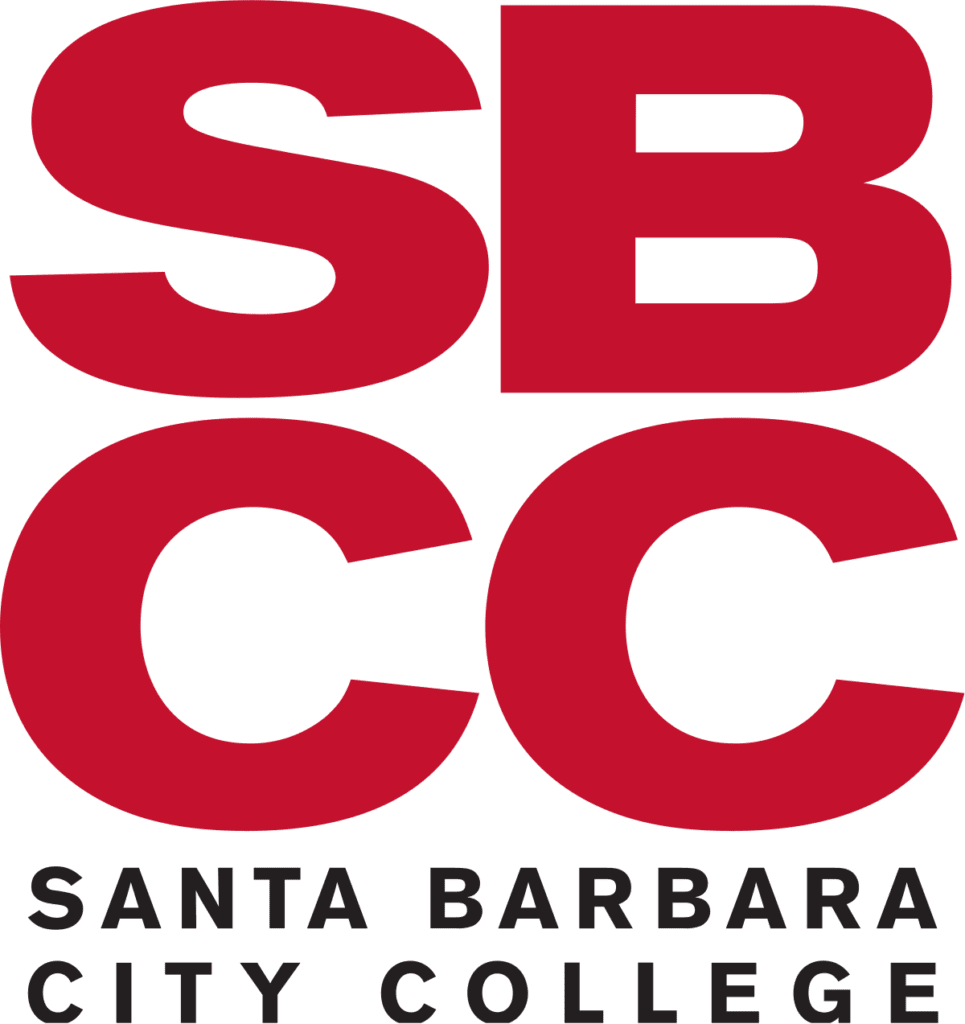
If you’re a local high school student, you can attend Santa Barbara City College tuition-free (and receive free books and supplies). SBCC has a two-year, 67-credit-hour Associate of Science in Health Information Technology degree. This program offers a strong base of information technology planning and processes to prepare you for entry-level positions.
Following general education requirements, you’ll take classes in Basic Medical Terminology, Introduction to Computer Applications, ICD Diagnostic and Procedural Coding, CPT Procedural Coding, HIM Computing Applications, along with others. These courses are offered online.
You’ll also need to complete a Health Information Technology practicum. Before the practicum, you may be required to submit a background check, drug check, etc. by the hosting facility. The cost of these requirements will be your responsibility.
Fast Fact: SBCC ranks in the top 100 of Niche’s “Best Community Colleges in America”
Degree Awarded: AS
Interested: Interested? See the program website for more information on this medical billing and coding program!
17. Minnesota West Community and Technical College

Minnesota West Community Technical College makes it easy for you to attend school. You can enroll in this school’s Health Information Technology, AAS degree at one of the four campuses or online. This program holds accreditation from CAHIIM and will qualify you to sit for the RHIT certification.
The 60-credit-hour program can quickly be completed in two years or less if you attend full-time. You’ll study pharmacology, medical terminology, medical billing and coding, basic health information and delivery systems, CPT and ICD coding, management of healthcare, ethics, etc. In addition, you’ll complete a capstone project.
Fast Fact: Minnesota West Community and Technical College is designated a “Military Friendly” by VIQTRY
Degree Awarded: AAS
Interested: Interested? See the program website for more information on this medical billing and coding program!
18. Arkansas Tech University

The Ozark campus of Arkansas Tech University offers an AAS in Health Information Technology, which requires 60 credit hours. Upon graduation from this Commission on Accreditation for Health Informatics and Information Management Education (CAHIIM) accredited program, you’ll be prepared to sit for the RHIT certification exam.
You’ll learn the basics of health records, become familiar with the ethical and legal components of health records, and more. Included in your curriculum are topics in diagnostic and procedural coding, methods of healthcare reimbursement, composition, math, and medical terminology, pathophysiology, and disease processes.
You’ll also be required to complete a Professional Practice Experience during your last semester. The 120-hour on-site practicum (along with 15 hours of classroom instruction) is designed to provide you with experience in various healthcare settings and facilities.
Fast Fact: ATU is ranked #30 in the “Top Public Schools” ranking of U.S. News and World Report
Degree Awarded: AAS
Interested: Interested? See the program website for more information on this medical billing and coding program!
19. Bryant and Stratton College
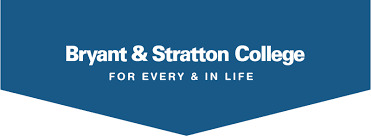
Bryant and Stratton College, a private for-profit school, offers its Medical Coding and Billing AS degree at one of its NY, OH, WI, or VA campuses and online. The degree is also available as one of Bryant and Stratton College’s new blended program options.
The degree’s 60-credit-hour curriculum is broad-based and covers topics in Electronic Health Records (EHR), computing skills, ICD and CPT diagnostic, and procedural coding, math, clinical documentation, etc. There’s also a Professional Coder Practicum necessary before graduation.
All courses and program requirements were developed to meet the American Health Information Management Association (AHIMA) and the American Academy of Professional Coders (AAPC) standards. This assures that you’ll be able to sit for certification in the field.
Fast Fact: Bryant and Stratton College was founded in 1854
Degree Awarded: AAS Medical Coding and Billing
Interested: Interested? See the program website for more information on this medical billing and coding program!
20. Fox Valley Technical College

You can earn an AAS in Health Information Technology degree in 61 credit hours from this Wisconsin college. The CAHIIM accredited program was designed using American Health Information Management Association (AHIMA) educational standards.
Located on the Appleton, WI campus, classes will include studies in ICD and CPT coding, health statistics and analysis, revenue management, diseases, law and ethics, anatomy, economics, and more. You’ll also complete a capstone project and professional experience before graduation.
The college reports that 97% of its Health Information Technology graduates found employment within 6 months of graduation, with an average salary of $43,000.
Fast Fact: Fox Valley Community College in Appleton, WI, ranks #4 in Niche’s “Best Community Colleges in America”
Degree Awarded: AAS
Interested: Interested? See the program website for more information on this medical billing and coding program!
21. Saint Paul College
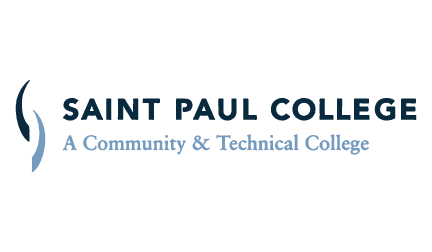
If you’re in Saint Paul, Minnesota, this community college offers a Health Information Technology Associate of Applied Science degree you can complete in 64 credit hours. This program is offered in the traditional classroom, online, or as a hybrid experience.
The broad-based curriculum accreditation from CAHIIM will prepare you for the RHIT credentialing exam. Among the topics, the program covers are studies in CPT and ICD coding, billing and reimbursement, disease, foundations of health information, anatomy and physiology, health statistics, methodology, and more. You’ll also complete a HIT internship/capstone project. Included in the 64 credit hours is coursework in general education studies (history, English, composition, etc.).
This program starts in the fall and is offered full-time or part-time.
Fast Fact: Saint Paul College was established in 1910
Degree Awarded: AAS
Interested: Interested? See the program website for more information on this medical billing and coding program!
22. University of Alaska Anchorage
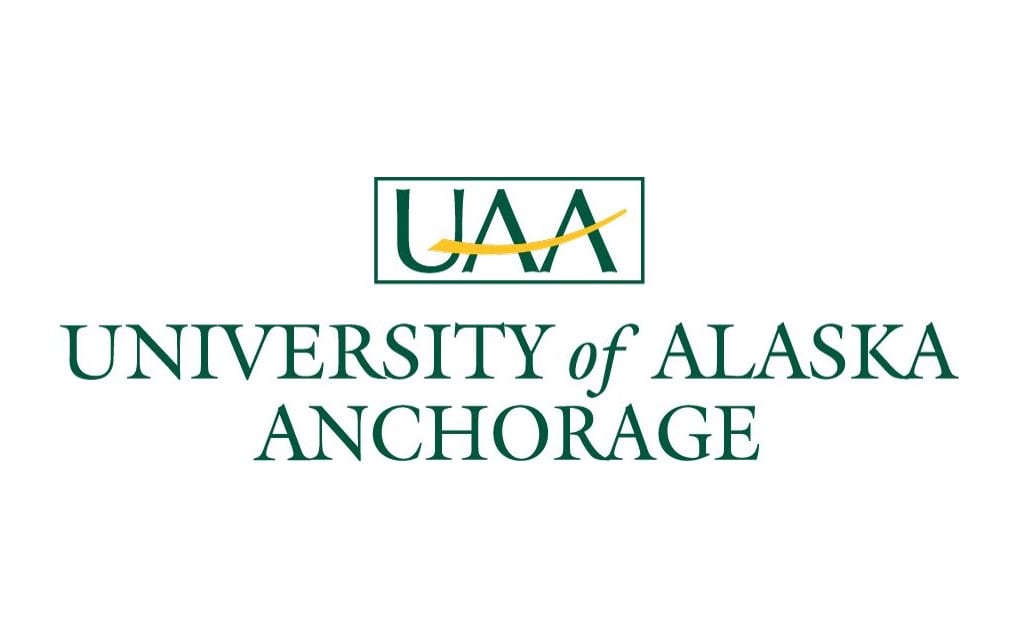
The University of Alaska Anchorage offers the only Commission on Accreditation of Allied Health Education Programs (CAAHEP) accredited Medical Assisting AAS degree in Alaska.
This 60-credit hour AAS degree has prerequisite studies required in specific math and writing courses, and you’re encouraged to complete medical terminology and human biology classes. The core curriculum for this degree will acquaint you with case studies in medical coding, nutrition, accounting principles, phlebotomy and specimen procedures, and a phlebotomy practicum.
Once you finish the curriculum, you’ll be eligible to take the Certified Medical Assisting exam (AAMA).
Fast Fact: The school reports a 100% graduate satisfaction rate
Degree Awarded: AAS
Interested: See the program website for more information on this medical billing and coding associate degree program!
23. Southeast Tech
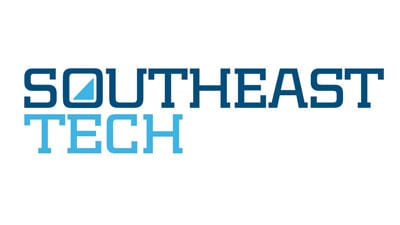
Located in Sioux City, South Dakota, Southeast Tech supports a Medical Coding: Professional and Facility AAS degree, which gives you an understanding of the two somewhat different coding responsibilities.
Professional coding concentrates on coding/documenting healthcare diagnostic and treatment procedures provided by individual healthcare providers. Facility coding considers hospital stays, resource allocation, nursing time, and other considerations of reimbursement requirements for hospitals or outpatient clinics.
The 64 credit hour covers basic, intermediate, and advanced CPT and ICD coding, medical terminology, regulatory compliance, reimbursement revenue, etc. This curriculum prepares students to take the Certified Professional Coder (CPC), Certified Coding Specialist (CCS), or Certified Inpatient Coder (CIC) exams.
Fast Fact: STI is one of Niche’s “Best Community Colleges in America”
Degree Awarded: AAS
Interested: See the program website for more information on this medical billing and coding associate degree program!
24. Pennsylvania Institute of Technology
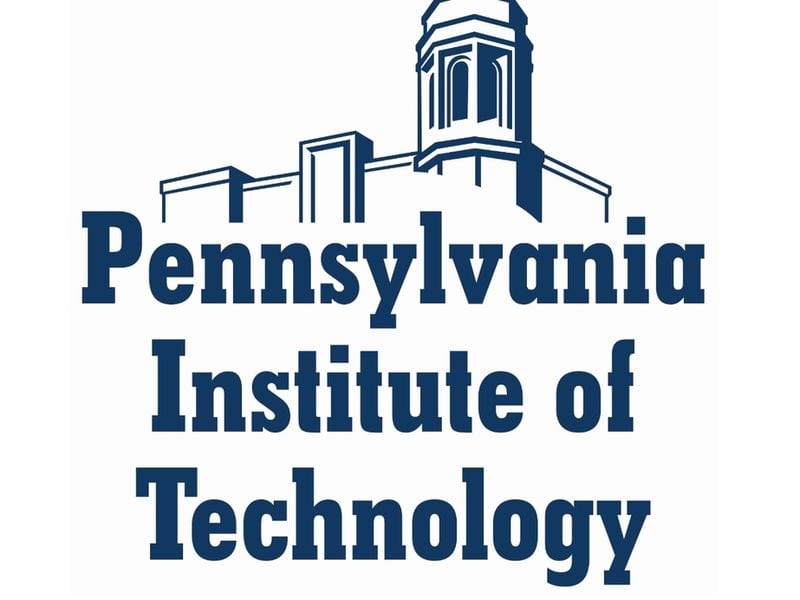
This is a new AS degree from the Pennsylvania Institute of Technology in Health Care Management with Coding Academy. The 65 credit hours curriculum is offered in-class/online/hybrid enrollment options.
The program will provide you with a foundation in a number of management and coding. Subjects covered will include CPT-4 and ICD-10 coding, medical office administration, ethics and healthcare regulations, anatomy and physiology, financial and strategic management, writing and communication, and more.
Your associate degree will transfer to a four-year institution if you want to pursue an undergraduate degree. P.I.T. offers free tutoring as you work through the program, and you’ll be able to earn certification as part of this program.
Fast Fact: P.I.T. has educated students for more than 65 years and holds accreditation from the Middle States Commission on Higher Education (MSCHS)
Degree Awarded: AS
Interested: Interested? See the program website for more information on this medical billing and coding associate degree program!
25. Keiser University
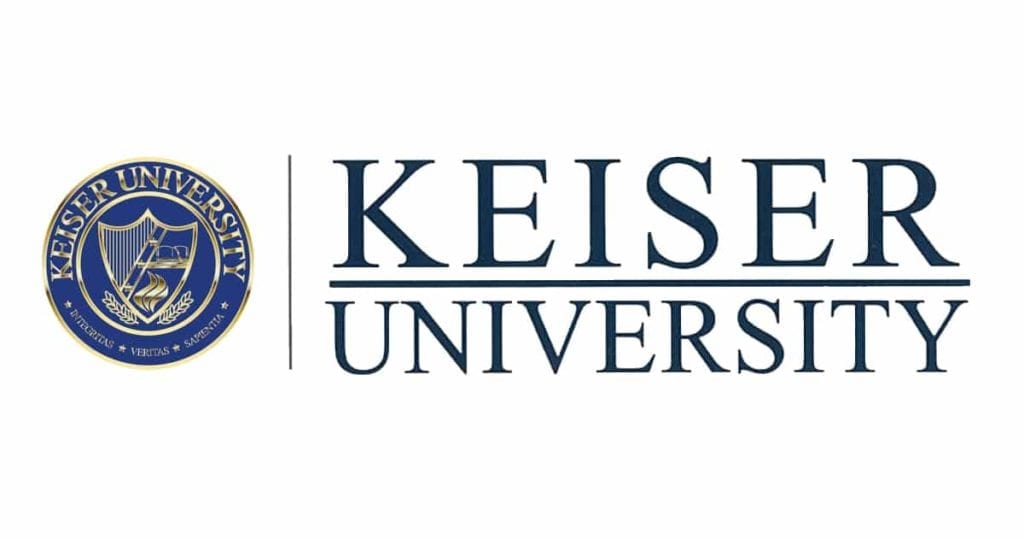
Keiser University offers an AS in Administrative Billing and Coding degree at one of its Florida campuses or online. Once completed, you’ll be able to function in a number of administrative and office management roles in insurance, reimbursement, and regulatory compliance.
You’ll take 60 credit hours, including general education courses in humanities, English composition, math, behavioral and social sciences, and computer technology. Core courses cover pharmacology, anatomy and physiology, CPT-4 and ICD-10 coding, medical office insurance and reimbursement procedures, and more.
Keiser University is a private, not-for-profit institution with campuses in 10 Florida cities, including its Fort Lauderdale Online Division. The school has accreditation from the Southern Association of Colleges and Schools Commission on Colleges (SACSCC).
Fast Fact: Keiser University offers Associate, bachelor’s, master’s, as well as doctoral degrees
Degree Awarded: AS
Interested: Interested? See the program website for more information on this medical billing and coding associate degree program!
How Do I Choose a Medical Coding and Billing Program?
You probably want to look for several things when determining which Associate in Applied Science Medical Coding and Billing degree is best for you. Here are some things to consider:
Accreditation
Medical Billing and Coding programs are accredited by the Commission of Accreditation for Health Informatics and Information Management Education (CAHIIM) or the American Academy of Professional Coders (AAPC).
This health information systems accreditation assures you the program meets specific standards and can lead to you receiving professional credentials. Typically, you receive certification by sitting for Certified Professional Coder (CPC), Certified Coding Specialist (CCS) or Certified Inpatient Coder (CIC) exams.
Curriculum
There are some foundational courses you’ll want to be sure the program covers, such as courses in health information, Current Procedural Terminology Coding (CPT) and International Classification of Diseases (ICD) coding, coding software, ethical and legal aspects of coding, patient records management, legal and ethical issues, reimbursement methods.
Cost
How much the program costs is always a consideration. The College Board estimates community college annual tuition averages $3,440, not including fees, books, and other expenses. Additionally, almost 20 states are providing tuition-free community colleges.
You’ll want to apply for Federal Student Aid to help with expenses and to qualify you for school scholarships or grants. Application for federal financial aid is free.
What is Medical Billing and Coding?
Coding is simply translating healthcare information into numeric or alphanumeric code. Every step in a patient’s care, from diagnosis to treatment, can be assigned a code used to reimburse services by Medicare, Medicaid, or commercial insurance. Medical Billing and Coding degrees train you to find, interpret, and assign the appropriate code for services rendered.
There are two prominent coding systems: Current Procedural Terminology Coding (CPT) and International Classification of Diseases (ICD-10). For example, suppose a patient sees their doctor for abdominal pain. That diagnosis is translated into the ICD-10 code 789.06. If the condition needs surgery, it will fall within the Current Procedural Terminology Coding or CPT range of 10021 – 69990.
Other coding systems include the International Classification of Functioning, Disability and Health (ICF), Healthcare Common Procedure Coding (HCPC), and Diagnosis Related Groups (DRG).
Is Medical Billing and Coding a Good Career Choice?
There’s little doubt that healthcare is one of the largest industries in the U.S. that goes beyond physicians and nurses. Allied health professionals, such as billers and coders, play an important supportive role. And, a medical coding program is a great choice for its job outlook.
Are you attentive to detail, can work independently, have keen computer skills, and enjoy working with people? Then, medical records technicians may be an excellent career option for you. Many coding jobs in the healthcare industry provide flexible schedules, remote work opportunities, self-employment or freelance possibilities, or full-time or part-time employment.
U.S. News and World Report ranks this healthcare career #3 in its “Best Jobs Without A College Degree”, #7 in “Best Healthcare Support Jobs,” and #55 in “100 Best Jobs.”
Is the Job Market Good for Medical Billing and Coding?
The federal Bureau of Labor Statistics estimates the job growth for those working in medical records and as Health Information Technicians to be a much faster than average 11% between 2018-2028.
Billing and Coding specialists are necessary for all areas of healthcare. Physicians, outpatient clinics, ambulatory services, long-term care facilities, hospitals, and health systems, commercial and non-profit health agencies, etc. all require coding and billing specialists.
PayScale reports that, nationwide, Medical Billing and Coding professionals earn between $35,000-$79,000 a year, with a median salary range of $50,000. These figures depend on where you live and work and don’t include any benefits such as 401(k) retirement, paid time off, sick leave, or health insurance.
Starting You Career
In addition to the traditional programs, there are online programs for medical coding specialists. And there are online associate programs that are very similar. Many schools also have medical insurance billing programs for health information technicians. Online students can complete their degree programs from anywhere with the internet!
Related Rankings:
- Best Online Medical Billing and Coding Associate’s Degrees
- Fastest Medical Billing and Coding Associate’s Degrees
- Fastest Online Masters Human Services Programs
- Best Human Services Bachelor’s
- Best Human Services Bachelor’s Online Programs
- Fastest Human Services Bachelor’s Online Programs
- Jobs with a Medical Social Work Degree?
- What Jobs Can You Get With a Health Science Degree?
- What Can I Do with a Bachelor’s in Nutrition?
- Best Types of Counseling Degrees
- Kinesiology and Exercise Science Salary
- CNA Degree and Educational Guide
- What Can You Do With a Master’s in Psychology Degree Program?
- What Can You Do with a Human Service Degree?
- Cheap MSN Online Programs
- Cheapest Psychology Degree Online